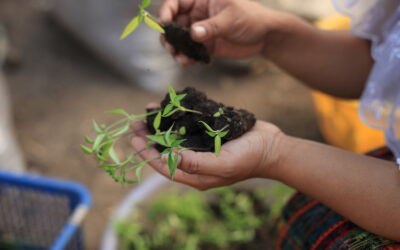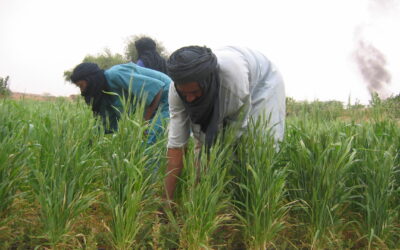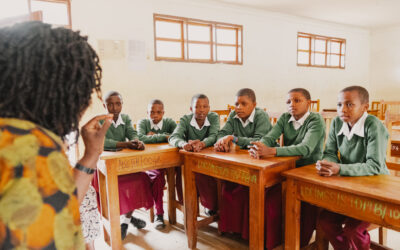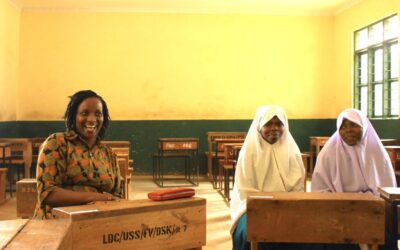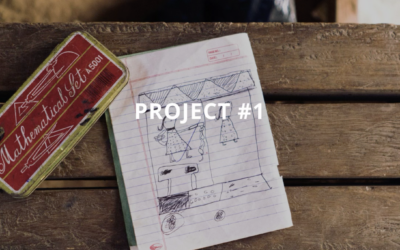8 interventions creating healthy homes in Zimbabwe
The philosophy behind the Healthy Homes approach is that sick adults cannot work or care for children, and sick children cannot attend school or grow physically at a healthy rate; thus only a truly holistic approach that addresses all aspects of health in the home will help families improve their livelihoods.
For the Zaka region of Zimbabwe, families have it particularly hard. Economic crisis, political instability, health emergencies, and drought keep many communities locked in a cycle of poverty. Because of the economic and environmental challenges, the need for practical household interventions are incredibly important to support this region.
The Healthy Homes initiative that we’re partnering on with Bopoma Villages in Zaka, implements 8 proven sustainable interventions that help families rise out of poverty.
1. BioSand Filters
A single household BioSand water filter can provide enough clean water to meet the needs of a household of 10 people. They eliminate virtually all parasites and over 95% of bacteria. The filters that Bopoma connects families with are made from locally available, cheap materials, require no chemicals, and require very simple maintenance.
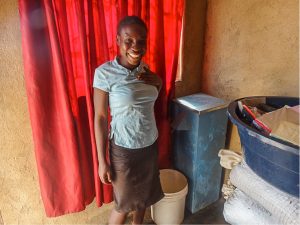
Anna and her family are beneficiaries of the Healthy Homes program and use a BioSand filter to access clean water.
“We used to frequently visit the hospital and spent a lot of money because of diseases from the water and I almost lost my life. We now have access to clean water at our home and I am very excited about this.”
A BioSand filter provides Anna’s family with a lifetime of clean, safe drinking water.
2. Tippy Taps
Tippy Taps are handwashing stations that provide an effective way to wash hands in the absence of running water.
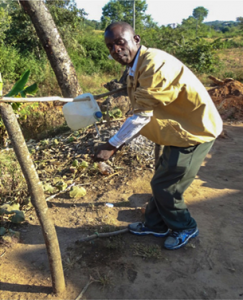
Joseph Wasosa is one of our partner Bopoma Villages’ dedicated community volunteers. Before the arrival of the Healthy Homes program in Zaka, Joseph’s family and many others suffered from preventable diseases transmitted by flies and contaminated water. Joseph is grateful for the opportunity to help improve the quality of life of children and families in his village through the practical interventions introduced by the Healthy Homes project.
3. Pot Racks:
These racks eliminate bacterial growth on wet dishes by drying in the sun, killing microbes.
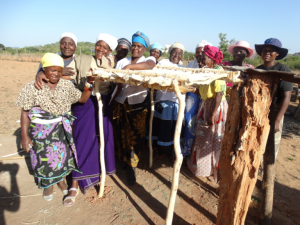
4. Disposal of Waste and Garbage
Removal of animal waste and garbage from yards and dwellings minimizes contamination and disease. Food and animal waste is composted and garbage disposed of in a pit.
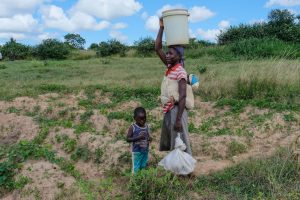
5. Fly traps
Flies are a major carrier of disease. Simple homemade devices like fly traps are easy to construct using low cost materials or locally available materials.
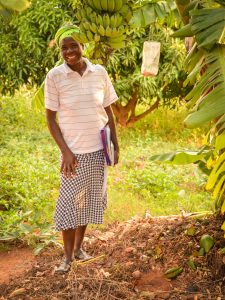
These traps are made with plastic bottles that catch and kill flies. These simple implements protect the health of villages from diseases spread by flies.
6. Rocket Stoves:
Cooking in many parts of Africa is usually done over open fires in small huts. The resulting smoke is a leading cause of death. Rocket stoves are simple to construct and generate more heat with less smoke using less wood, and are used outdoors.
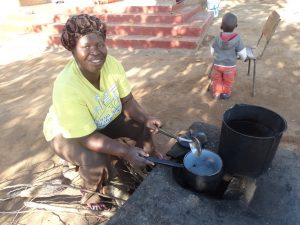
Salome Chakomoka smiles as she prepares dinner for her family. A mother of three young children, Salome has a lot to smile about as she proudly prepares a meal on her new outdoor rocket stove. Cooking in Africa is usually done over open fires in small huts. The resulting smoke is one of the leading causes of death for women and small children. The Healthy Homes program teaches families to build no-cost rocket stoves that generate more heat with less smoke. Rocket stoves also use a fraction of the amount of wood needed for an open fire, saving women and girls hours of labor gathering wood. Salome says,
“We now know that it is us who can change our lives.”
7. Bio-Intensive Household Gardens
A diet consisting mainly of maize meal prevents starvation but lacks essential vitamins and minerals, so bio-intensive gardens provide high-nutrient vegetables essential to health and disease prevention.
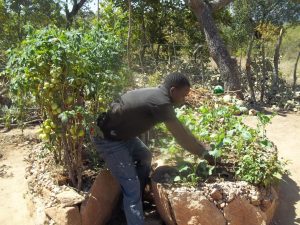
“My name is Isaac, and I live in Chimedza village with my mother and younger brother. My mother has a lot on her hands. To make things easier for her I have worked with others in my village to build the nutritional community garden and also to construct a keyhole garden at our home. Our keyhole garden has supplied us with many kinds of vegetables, which gives us all the vitamins we need. We have already harvested and replanted our keyhole garden at least four times now. We have learned to compost all our kitchen food garbage in the basket in the center of our keyhole garden so our homestead stays clean and our soil is always being enriched.”
8. Rainwater Harvesting
Water is critical to the success of a garden, and locally developed methods of capturing and storing rainwater extends the growing season of a garden. Our partner Bopoma Villages is developing and teaching methods of rainwater harvesting and conservation so that families and communities can retain and make maximal use of whatever rainwater falls.
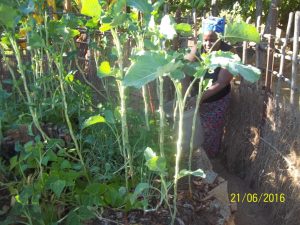
Support the Healthy Homes program in Zaka, Zimbabwe here.
Serena Kaveney is a Grant Analyst at One Day’s Wages and a student at Seattle Pacific University.
Share this story: [shareaholic app=”share_buttons” id=”26108403″]
More stories of impact
Climate & Poverty: How Do We Respond?
The mission of One Day’s Wages is to alleviate extreme poverty. While we can truly celebrate all the progress that has been made over the years, there is a looming threat to that progress: climate change. The World Bank estimates that another 100 million people could...
It’s Time We Rethink Orphan Care
Orphanages are often serving as a stopgap for families who are struggling in poverty. In Uganda, Harriet lives with her two daughters but struggles to provide for them. With no choice but to leave her abusive husband, Harriet did not have the means to provide food,...
Global Hunger: Toward an Integrated Response
The world has made a lot of progress toward reducing global hunger over the last century. Still, around 735 million people experienced hunger in 2022, and the numbers grew over the last few years due to conflict, climate change and COVID (FAO 2023). To work toward...
Tanzania Trip Reflection
Hello everyone! My name is Micah and I am the Operations and Projects Coordinator here at One Day's Wages. After getting the chance to go on a partner visit with my colleague Daphne, One Day's Wages' Grants Director, to Tanzania, I wanted to share my highlights and...
Investing in Education: An Interview with Theopista Seuya
Theopista Seuya is the Asante Africa Foundation Country Director for Tanzania. She holds a Master’s Degree in Education Policy and International Development from the University of Bristol, and previously served as a teacher, head of school, and university lecturer. ...
Celebrating 300 Grants!
One Day’s Wages began in 2009 with one small grant: $5,000 to help 200 displaced Burmese students attend school. This August, we reached the significant milestone of awarding our 300th grant! This most recent grant will build the capacity of 225 midwives to...
One Day's Wages is a grassroots movement of people, stories, and actions to alleviate extreme global poverty
©2022 One Day's Wages is a registered 501(c)(3) organization | Tax ID #26-2566653 | Privacy policy | Terms of use
P.O. BOX 17575 Seattle, WA 98127 | Contact us

